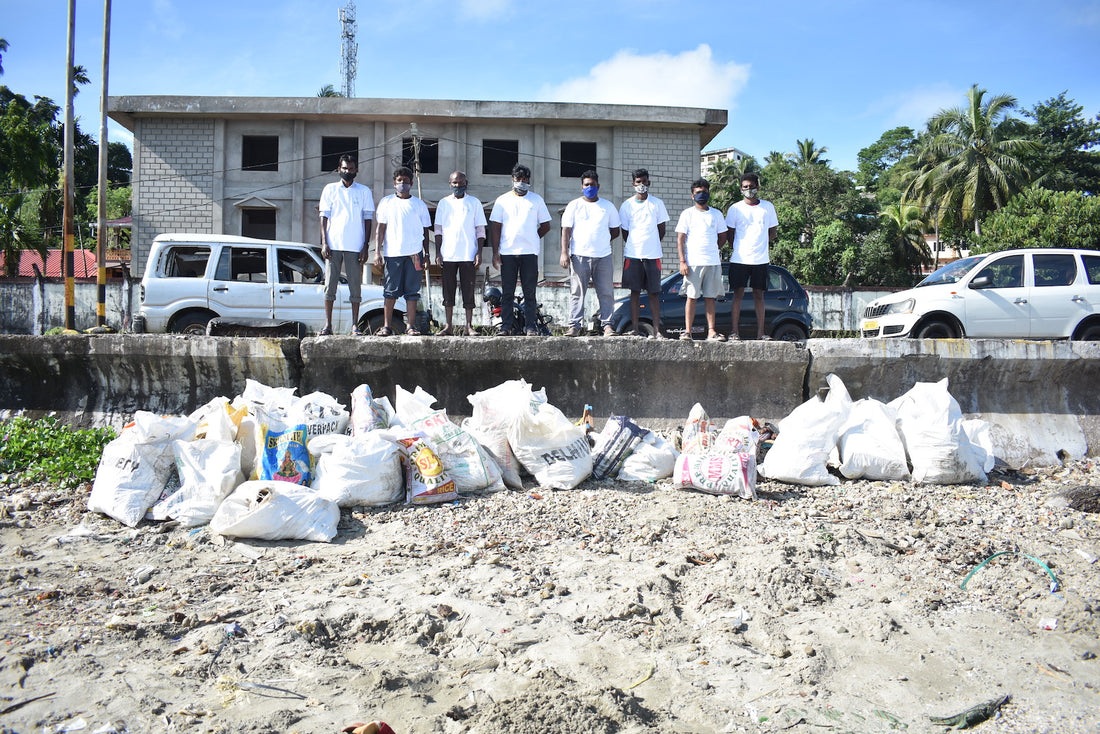Since we launched Bower, we’ve had a total focus on our mission - the elimination of plastic waste. My inspiration as co-founder of Bower came from my previous job. We worked on a big data project with one of the world’s biggest NGOs to map all of the marine plastic waste in the oceans and it blew my mind, the sheer scale of the issue.
So we are very excited to announce that today, Friday 10th March, we officially launch our new partnership with CleanHub to expand our mission and directly support waste-picking communities in rural India who are removing ocean-bound plastic waste.
CleanHub plans to prevent 50% of new ocean plastic by 2030. Unlike alternative approaches that are focused on recovering plastic once it is already in nature, CleanHub is stopping it from getting there in the first place.
They focus on bringing waste collection systems to coastal regions where they don’t yet exist, and stop waste from leaking into the environment or being openly burned. Instead, CleanHub and their partners collect waste on a large scale and ensure it is all properly disposed of.
Bower, with CleanHub, are supporting the Green Worms Waste Management project based in rural Kerala, South India. They employ 335 local Keralan people to collect non-recyclable household waste directly from households before it enters landfill or the natural environment.
All of this waste is then processed in energy recovery plants to produce cement for the local construction industry. The alternative fuel for these plants is dirty coal, so this process is 25% more carbon efficient than the conventional alternative. And - it is 100% the best solution in those territories that CleanHub operates in, given there is no other recycling infrastructure for the waste to be processed through.
Our commitment in this first year is to remove 10,000kg of ocean bound plastic waste through the CleanHub / Green Worms partnership. You can read more about the partnership on our impact hub here. We’ve already eliminated over 36,000kg of plastic waste from landfill and the natural environment and we will now increase our impact even further with this partnership.
This also signals the end of our long-standing relationship with the Marine Conservation Society, during which we’ve supported their seagrass protection campaign, preserving endangered seagrass in UK coastal waters, a key element for marine biodiversity. During our partnership we’ve helped the MCS protect over 103,000m2 of seagrass and supported their Beach Clean activities for the past 2 years, which we will continue to do.
